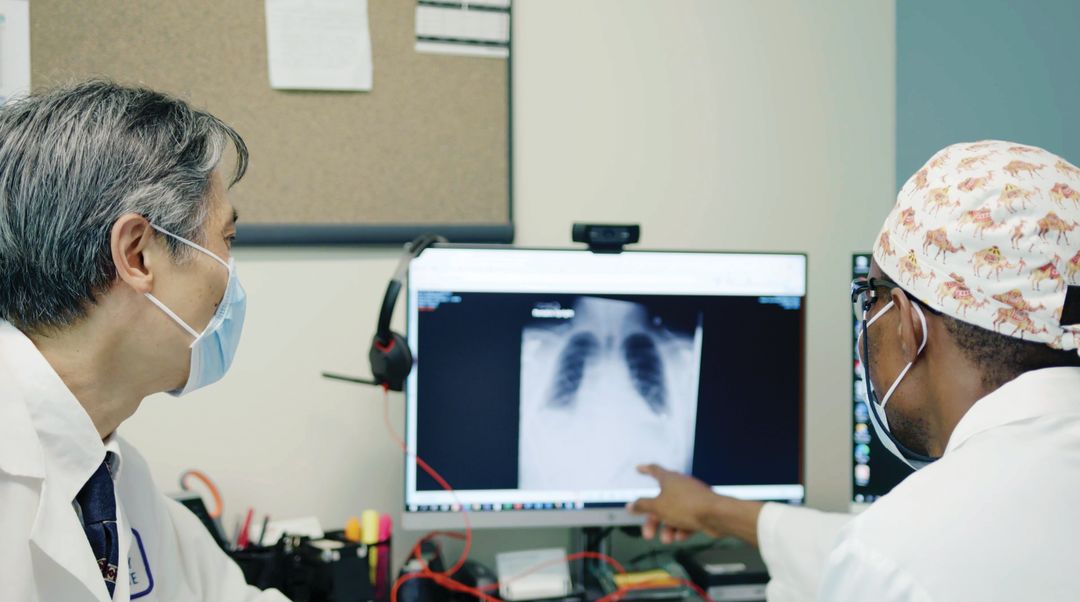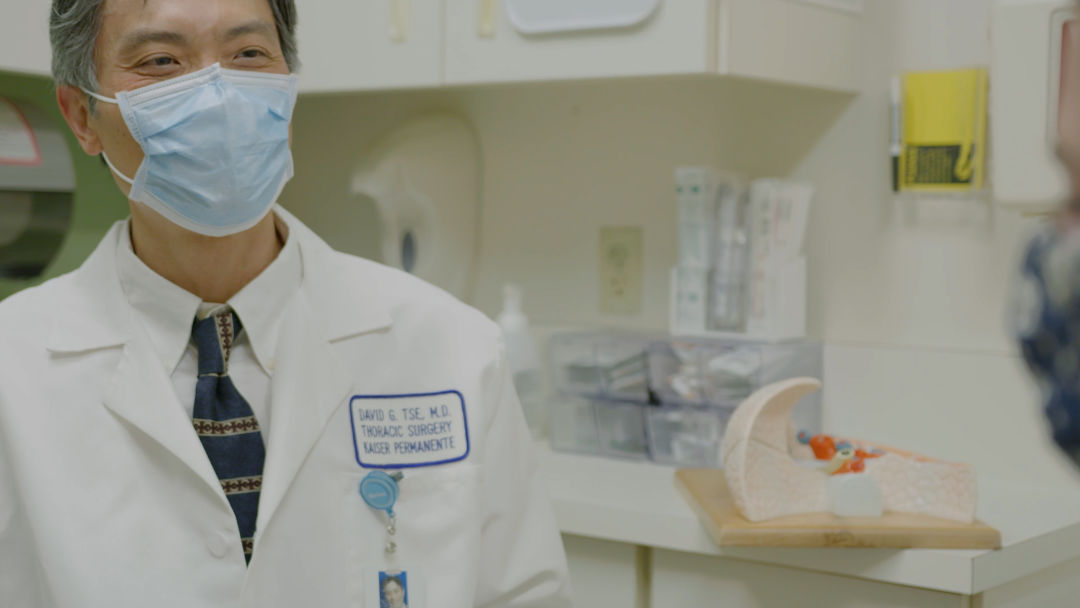Screens, Scans, and Connected Care

In October 2020, Maria Diaz went for a routine trip to her primary care doctor. Just two months later, she had surgery that likely saved her life. For Diaz, it was an unexpected, deeply personal story with a happy ending. But for Kaiser Permanente, it is the story of a well-designed system working exactly the way it should.
At that appointment in October, Diaz reported that she had a history of smoking. Her primary care doctor recognized that she met clinical lung cancer screening guidelines — issued by the U.S. Preventive Services Task Force and endorsed by Kaiser Permanente Northwest — and ordered a CT chest scan. That scan revealed a mass in her right upper lung lobe, and it was determined that she had early-stage lung cancer.
Luckily, the cardiothoracic department of Kaiser Permanente’s Sunnyside Medical Center has extensive experience treating this type of condition, and a team of experts was ready to help.

A Team Approach to Care
After additional pulmonary tests were completed, a multidisciplinary tumor board made up of medical and radiation specialists in oncology, radiation, surgery, and pulmonology reviewed the details of her case and evaluated her treatment options.
That team included Dr. David Tse, a thoracic surgeon who’s been with Kaiser Permanente for more than 20 years and who would guide Diaz through treatment.
After discussing the available options with Dr. Tse, Diaz opted to undergo a lobectomy with videosisinthoracospocy, a less invasive, video-assisted surgery that would enable Dr. Tse to remove the tumor and allow Diaz to recover more quickly while experiencing less pain than with other modes of surgery. In addition, chemotherapy, which is shown to further boost survival rates with lung cancer, could begin sooner thanks to the shorter recovery time.
Treating Patients Like Family
Now, Diaz is recovered and back to doing what she loves. And throughout the process, Kaiser Permanente staff collaborated to provide comfort and top-tier care, from diagnosis through treatment.
“We treat our patients like our family,” says Dr. Tse. “There’s a continuum of care here that — from our clinicians to our physicians to our nurses — fosters a culture of quality and strives to achieve the best outcomes for our patients.”
People often hear about the need for preventive care, and Diaz’s experience demonstrates just how important it is to make those regular checkup appointments. Screening guidelines such as those followed by Kaiser Permanente make those appointments even more valuable, allowing primary care doctors to immediately order further testing when warranted.
“Lung cancer screenings can save lives,” says Dr. Tse. Referring to Diaz, “Her story showed that this process worked.”
To learn more about Kaiser Permanente’s cancer services, visit:
 Cancer Care - Learn More | Kaiser Permanente Oregon & Washington
Cancer Care - Learn More | Kaiser Permanente Oregon & Washington
